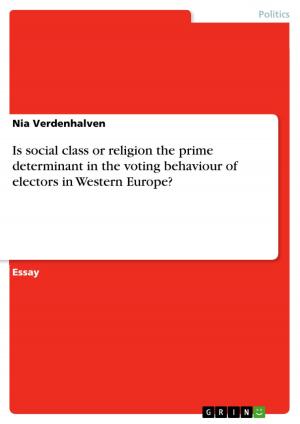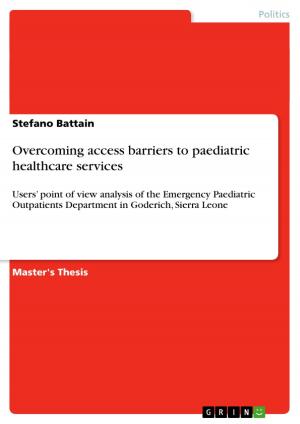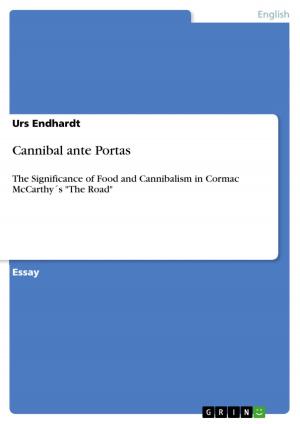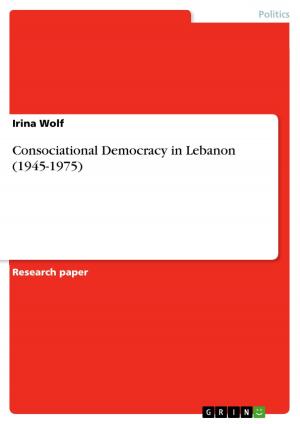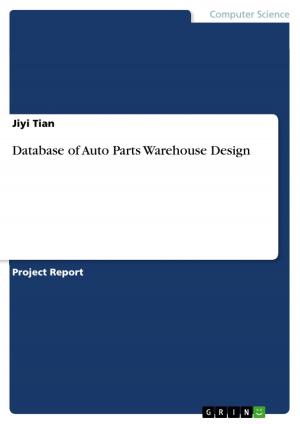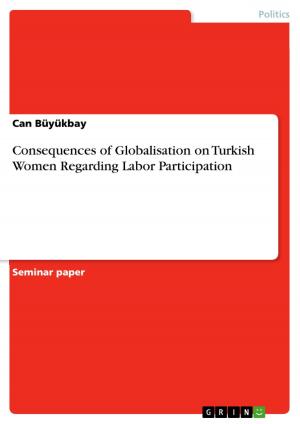Voter's choice in Ukraine's Presidential and Parliamentary Elections since 1994
Nonfiction, Social & Cultural Studies, Political Science| Author: | Nico Rausch | ISBN: | 9783640173990 |
| Publisher: | GRIN Publishing | Publication: | September 23, 2008 |
| Imprint: | GRIN Publishing | Language: | English |
| Author: | Nico Rausch |
| ISBN: | 9783640173990 |
| Publisher: | GRIN Publishing |
| Publication: | September 23, 2008 |
| Imprint: | GRIN Publishing |
| Language: | English |
Scientific Study from the year 2007 in the subject Politics - International Politics - Region: Russia, grade: 1,0, Vilnius University (Vilnius University), 31 entries in the bibliography, language: English, abstract: The aim of this paper is to find out the major changes in interests of the Ukrainian society and how they determined party preferences. Therefore it will not only analyse parliamentary elections but also presidential elections. The presidential - parliamentary system of Ukraine (until 2005), with crucial powers of the president is determining presidential elections as important, even if parties itself play a less important role than candidates. Change of interests also can be visible by voting for one or another candidate at least for major cleavages in the society. Presidential elections also normally work for the consolidation of party competition (Harasymiw 2002). The first part of this work will lay the theoretical ground for the analyses of voter preferences in Ukraine. It will deal with a generalization of interest building theory and a more closer view on transforming post-communist societies. Furthermore it will present two concepts which are important in explaining the interconnection between society and political interests. The first concept deals with class inequalities as base for class specific interest and voting behaviour. But this concept cannot give enough explanation for the case of Ukraine, due to its special political development in general and its different historical experience during Soviet times. Therefore I will present a second concept; the concept of cleavages. It is more genereal in describing the connections between specific interest and voter preferences and therefore more useful than the former concept. In the second part of this paper I will analyse the parliamentary and presidential elections of Ukraine until 2006. Therefore I will describe important surroundings, present the results and analyse the major cleavages or interest groups. [....]
Scientific Study from the year 2007 in the subject Politics - International Politics - Region: Russia, grade: 1,0, Vilnius University (Vilnius University), 31 entries in the bibliography, language: English, abstract: The aim of this paper is to find out the major changes in interests of the Ukrainian society and how they determined party preferences. Therefore it will not only analyse parliamentary elections but also presidential elections. The presidential - parliamentary system of Ukraine (until 2005), with crucial powers of the president is determining presidential elections as important, even if parties itself play a less important role than candidates. Change of interests also can be visible by voting for one or another candidate at least for major cleavages in the society. Presidential elections also normally work for the consolidation of party competition (Harasymiw 2002). The first part of this work will lay the theoretical ground for the analyses of voter preferences in Ukraine. It will deal with a generalization of interest building theory and a more closer view on transforming post-communist societies. Furthermore it will present two concepts which are important in explaining the interconnection between society and political interests. The first concept deals with class inequalities as base for class specific interest and voting behaviour. But this concept cannot give enough explanation for the case of Ukraine, due to its special political development in general and its different historical experience during Soviet times. Therefore I will present a second concept; the concept of cleavages. It is more genereal in describing the connections between specific interest and voter preferences and therefore more useful than the former concept. In the second part of this paper I will analyse the parliamentary and presidential elections of Ukraine until 2006. Therefore I will describe important surroundings, present the results and analyse the major cleavages or interest groups. [....]


